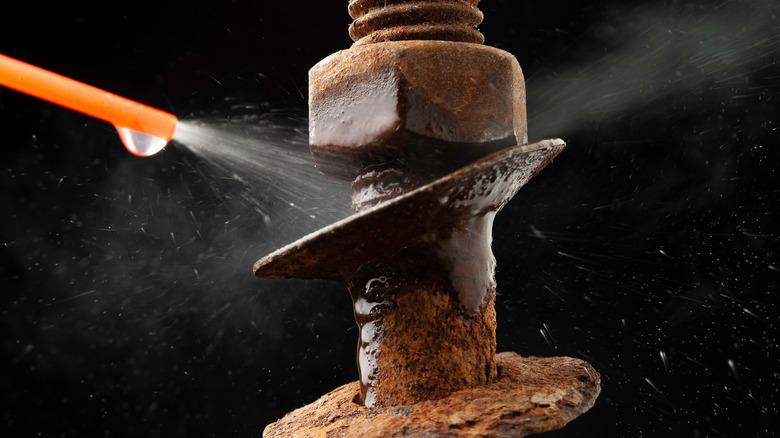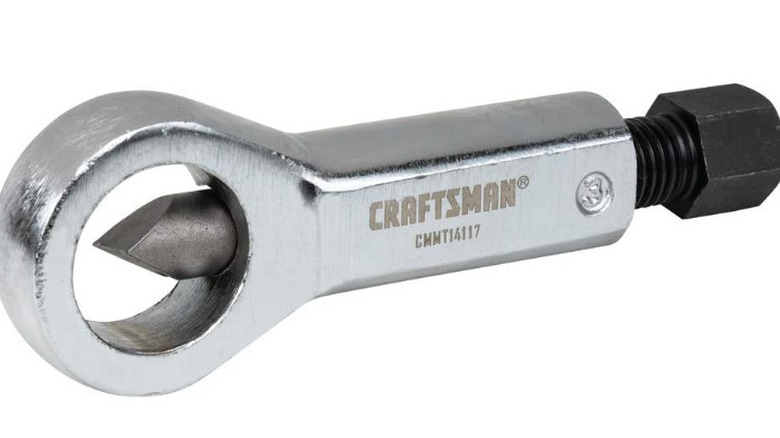Nut Splitters: The Tool You Didn't Know You Needed (And How It Actually Works)
We may receive a commission on purchases made from links.
Sooner or later, pretty much everyone comes up against a stubborn nut that just won't budge. A wrench won't shift it, nor will a socket. There's a whole bunch of brilliant ways you can use WD-40 in the garage, but while it usually does the trick, it's not working this time. An impact driver might, but this nut is in an awkward spot where there's no space to use one. You might even think about blasting the nut with a torch to see what happens, but there's gasoline and oil around, so that's too dangerous.
It's time to reach for a tool you didn't know you needed. It's called a nut splitter, and it works exactly as it sounds, by splitting the nut with a wedge-shaped blade made of hardened steel. Nut splitters are actually very simple tools to use. The end with the blade slips over the offending nut. At the other end is a bolt. Using a wrench or a socket, the bolt is tightened. This drives the blade into the nut, cleaving through it. It may shear the nut completely, or it will force it apart far enough so the thread no longer grips the bolt and can be taken off.
Nut splitter pros and cons
Although nuts and bolts can be made from a variety of materials, carbon steel is the most common. The hardened steel of the nut splitter blade is much tougher, so it doesn't usually take huge effort to get the job done. It's very controllable, so you won't normally damage the thread on the bolt. A good quality tool like the Craftsman Universal Nut Splitter will cost around $20. Cheaper models are available, but there can be issues with durability, so it's worth investing in quality.
Nut splitters can accommodate a range of sizes, but 'universal' is a bit of a stretch, so it's possible you'll need more than one. Although they're quite short and can usually fit in cramped spaces, there will always be exceptions, so you might want to check dimensions before you buy. They do destroy the nut, of course, but then you are only using one in a situation where it wasn't going to be salvageable anyway. Finally, they only work on nuts, so you might still need to head to the alcohol cabinet next time you're dealing with a rusty bolt.

